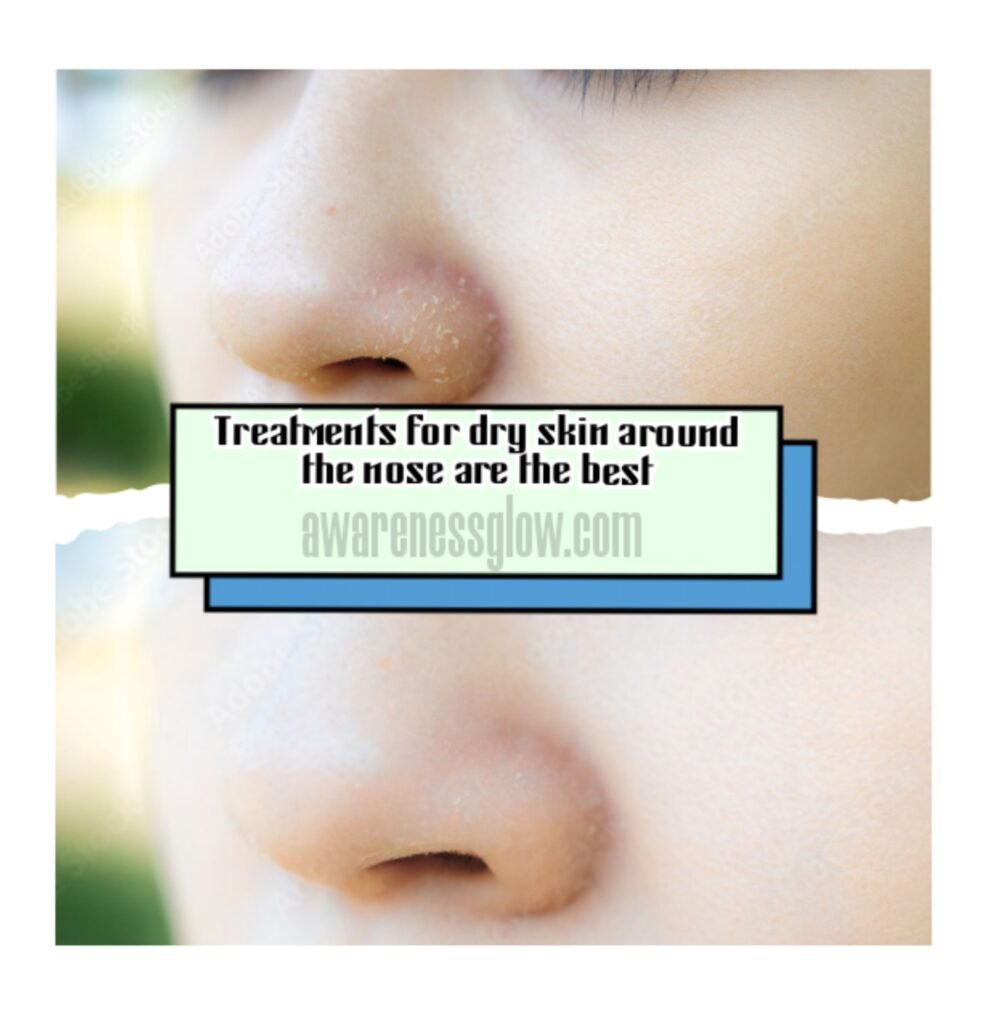
Treatments For Dry Skin Around The Nose Are The Best
Introduction;
Commonly occurring dry skin around the nose can also be unpleasant and unsightly. This delicate area is prone to dryness for various reasons—including weather fluctuations, aggressive skin care products, or underlying diseases like eczema. Restoring moisture, calming inflammation, and avoiding future dryness depend on finding the correct treatment. Effective treatment can help you get smooth, hydrated skin around the nose, whether by selecting the proper moisturizer, adding mild exfoliation, or changing lifestyle choices.
How might dry skin around the nose be corrected?
Products, including alcohol, fragrances, or strong chemicals, can dry the skin, especially in sensitive areas around the nose.
Dehydration:
Not drinking enough water can dry your skin from the inside.
Excessive exfoliating can rob the skin of natural oils, causing dryness and irritation.
Why is the area around my nose so dry?
Temperatures Variations
Winter’s cold, dry air outside and indoor heating can rob your skin of moisture. The nose is often in direct view of the elements, so the area around it is especially vulnerable.
Even a brief encounter with cold wind can result in notable moisture loss, which would dry the nose and cause redness and irritation.
Over washing
- Using too harsh or alcohol-containing facial cleansers can rob the skin of its natural oils, which would cause dryness. This is particularly true of the delicate skin surrounding your nose.
- Washing your face with hot water might also dry out your skin, especially in thinner, more sensitive areas like the nose.
How does one clear a dry nose?
Fixing a Dry Nose:
Remedies
Using Nasal Moisturizers
Applied inside the nostrils,over-the-counter nasal gels or ointments form a protective barrier against dryness. Look for items with known moisturizing qualities, such as glycerin, aloe vera, or sesame oil.
Steam inhales help moisten and open dry nasal passages. Fill a bowl with hot water, cover your head with a towel, and inhale the steam for five to ten minutes. The effect may be improved with a few drops of eucalyptus or peppermint oil.
Omega-3 Agents Found in fish and flaxseed oils, omega-3 fatty acids are anti-inflammatory and help moisten your nasal passageways. Before beginning any new supplements, see your doctor.
How might one apply coconut oil for a dry nose?
Use organic, unprocessed coconut oil to guarantee using a product free of chemicals and additives.
Make sure your nose is clean before dabbing coconut oil on. Lightly blow your nose and give your hands a thorough wash.
Use a fresh cotton swab or your fingertip to apply a tiny bit of coconut oil sparingly inside your nostrils. Be careful not to overindulge, as too much oil can cause discomfort or trouble breathing.
Reapply coconut oil several times a day, mainly if you live in a dry environment or after blowing your nose.
Though coconut oil is usually safe, monitoring any allergic reactions or irritation is wise. If you experience adverse side effects, stop using it and see a medical practitioner.
For a dry nose, which oil works best?
Coconut Oil
One of coconut oil’s main known moisturizing qualities is It includes lauric acid, among fatty acids, which hydrate and guard the skin.
Before bed, use a sterile cotton swab to gently dab some coconut oil inside your nostrils. This helps the oil work overnight.
Orange Oil
Almond oil is suitable for sensitive skin because it is mild and encouraging. Its vitamin E and fatty acids aid in skin barrier repair and hydration.
Use a cotton swab or your fingertip to gently dab almond oil into the afflicted area. It’s perfect for daily use to keep moisture levels constant.
Olive Greener
Olive oil is high in vitamins and antioxidants, especially vitamin E, which is fantastic for skin conditions. Its anti-inflammatory qualities can help to ease irritation.
Use a cotton swab to apply a light layer of olive oil to the inside of your nose. If necessary, do this several times a day.
Selecting the correct oil will help significantly control and reduce dryness in your nose. Each coconut, olive, almond, jojoba, and avocado oil has unique advantages; thus, you might have to try several to see which suits you most. Regular use combined with good hygiene and hydration will help to keep your nose comfortable and healthy.
